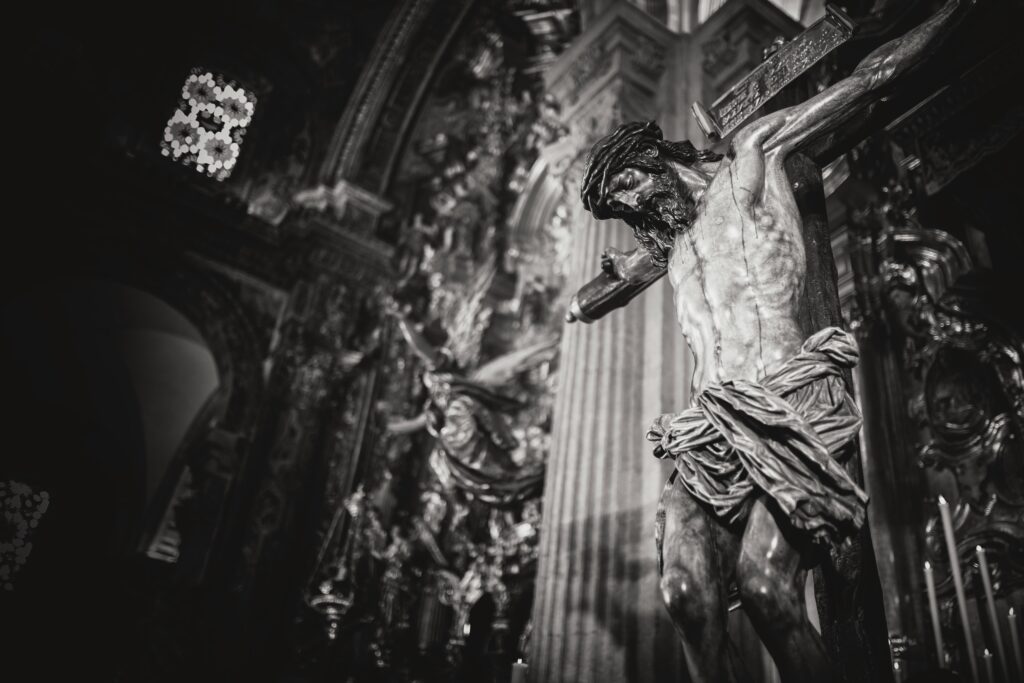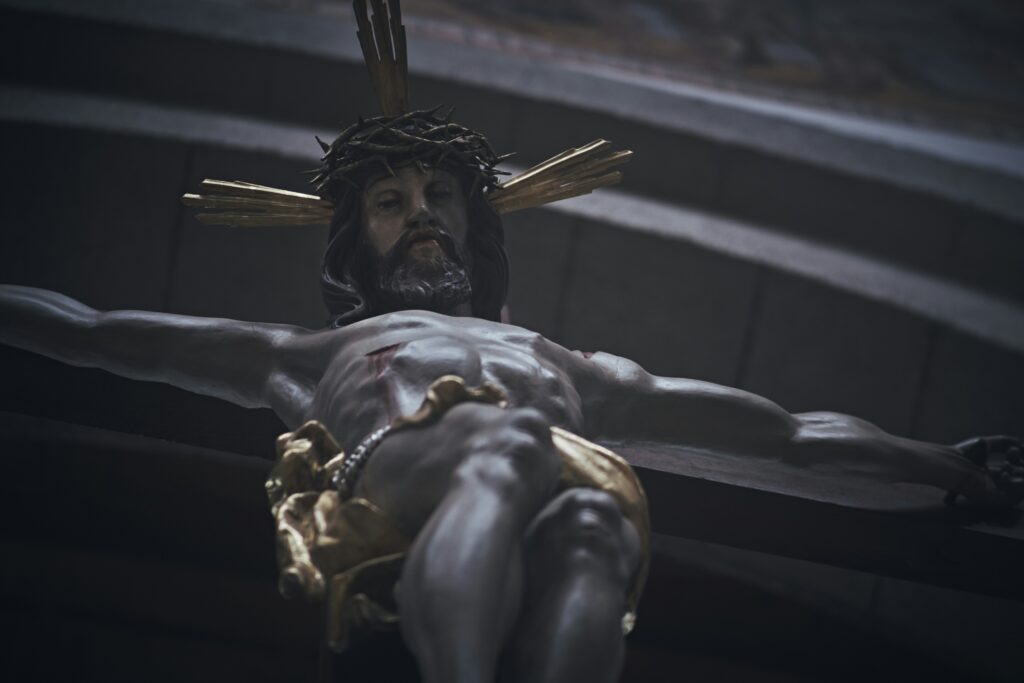As if through the eyes of a child
…unless you turn and become like children, you will not enter the kingdom of heaven (Mathew 18. 3)

Some months ago, when I was living with my wife in Assisi for a period of academic research, a very close friend sent us an email expressing her greetings for Christmas. A special saying written in Italian, fitting well with the season in that wonderful place, completed her lovely words. I would like to share a translation of those words: “Miracles happen every day, but it is more important to understand that it was a miracle”. Even though this phrase is more or less a familiar expression, there is no doubt that it is part of a genuine belief, and perhaps we can accept it and agree with its meaning if we stop to consider each and every word of it. Even more so, maybe this thought could be seen at least as a suggestive invitation to renew our vision of reality. This vision brings us to a celebratory way of existence, very similar to the one we find in several authors who speak about childhood, about its characteristics and its conception as a “lost paradise” that, through nostalgia and memories, could nevertheless be recovered. But we will go over these ideas step by step with the help of several writers.
The word miracle, in a general sense and according to most dictionaries, is defined in the first place as “an extraordinary and welcome event that is not explicable by natural or scientific laws, attributed to a divine agency”[1], a meaning that we can find in other languages where this word exists derived from Latin: miracle in French, miracolo in Italian, milagro in Spanish, etc. No doubt, on first look, it would seem that this description contradicts the perspective proposed for this word in the quoted phrase. The extraordinary is the rare, the unusual, and in the case of a miracle, the best and the most wondrous and unexpected fact. However, according to our phrase, wonders happen every day, and this possibility of understanding them as facts responds to a faith that is, at the same time, a gaze capable of discovering continually the miraculous in reality and its facets. The etymology helps us once more in this sense. In Latin, miraculum is an “object of wonder, admiration”, and derives from mirari “to wonder”, “to admire”; from mirus “wonderful”, “marvel” and also “the marvelous”, and so there is a direct relation with the root mir, associated with “to look at”. The visual is the clue[2], although it doesn’t exclude other mirabilia from being perceived by the other senses. But there is something else in this etymological adventure: In Italian there is also the relation mirari-smirari that several scholars link with the root smi, and from here smile, with the same pleasant meaning in others languages[3]. Isn’t it this relationship amazing? Perhaps we could say that the marvelous, the daily miracle is discovered when we look with attention and pleasure, enjoying and smiling. No doubt it is a special gaze by which the human being reaches a certain plenitude in his experience with reality.
This gaze, this attention to astonishment linked to the discovery of reality, which we may call contemplation –the same word given also to the practice of monks and mystics in their attempts to approach God’s love and his Creation–, can be related as well to the gaze of a child in his initial relationship with the world, when he starts to explore and to take his first steps. It is possible to believe that this conception of childhood is nothing more than an idealization; a common belief built on traditions, and thus probably questionable in different ways. Perhaps if there is any certainty in this prejudice or suspicion, it is also true that we believe, from our present perspective, that childhood holds something we have lost and that we want and need to recover. Saint-John Perse, in his poem “To celebrate a Childhood”, introduces a leitmotif after naming the wonders that the poetic voice remembers with astonishment and pleasure: those things full of light that he discovered as a child: “If not Childhood, what was there then that is no more?”
Astonishment, contemplation, communion are acts the child does naturally; all of them constitute grace –like the one Adam and Eve had in Eden–, the grace that allows to live, to inhabit reality in a complete being there. I am not talking about the diverse circumstances that determine the infancy of every person, or about the supposed happiness of childhood. Regardless of happy or unhappy infancies, I am talking about common elements of all childhood that configure a desired plenitude of existence for us, and that can be distinguished. Perhaps we try to answer Saint-John Perse’s question in order to think how we could recover those elements in our present. In a conference about the Mediterranean Sea and culture, Paul Valéry remembers specially those three word-acts of his childhood that made him into a person and he goes on to affirm that then he might “feel without effort and without reflection the true proportion of human nature, the step to the higher grade, which is also the more human”. Maybe for this reason the second part of the initial phrase of this meditation is essential in this respect: “to understand”, to be conscious of this way of looking at reality and to inhabit the world in its entirety. Heidegger describes the fundamental trait of inhabiting as the looking after, the taking care of the human being, and he adds with precision: “inhabiting is to be led to peace and to remain in it, in the liberty that cares for all things and carries them to their essence”. How to reach this singular care of the human being that points to plenitude in freedom and peace? By trying to recover the sense of contemplation, as if through the eyes of a child but with an attentive conscience; a loving gaze at things, without prejudice or preconceptions, and with a receptive soul so as to be able to recognize the marvel of reality as a gift and to accept the miraculous. This seems to be a good inkling for beginning to “understand” and to build that ideal inhabiting.
—————-
[1] Oxford Dictionary. In the web page:
http://oxforddictionaries.com/definition/american_english/miracle?region=us&q=miracle. Consult: September 13, 2012.
[2] Jacques Le Goff observes this same fact when underlines these aspects of vocabulary in his study “The marvelous in the Medieval West” (in Lo maravilloso y lo cotidiano en el Occidente medieval. Gedisa. Barcelona, 1986, pp. 9-24).
[3] Vocabolario Etimologico della Lingua Italiana di Ottorino Pianigiani. In the web page: http://www.etimo.it/?term=mirare&find=Cerca. Consult: September 13, 2012.
Related

“Praying is an immense privilege”
José Miguel Ponce
17 April, 2025
3 min

Cardinal Felipe Arizmendi: Jesus Continues to Suffer
Felipe Arizmendi
17 April, 2025
4 min

The classics educate in humanity
Francisco Bobadilla
16 April, 2025
3 min

Words That Illuminate Our Crosses
Mario J. Paredes
16 April, 2025
6 min
 (EN)
(EN)
 (ES)
(ES)
 (IT)
(IT)

